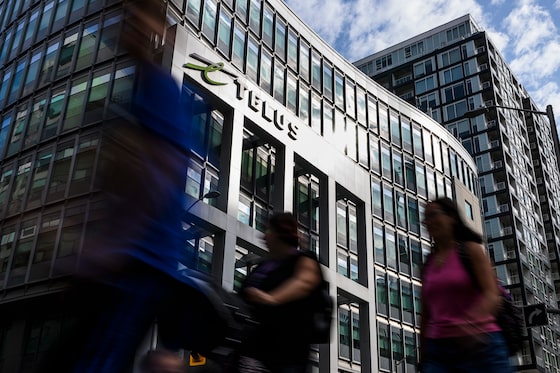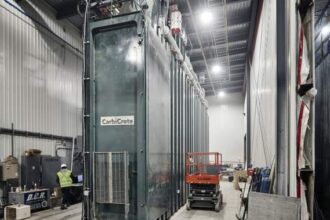In a bold move set to reshape Canada’s digital landscape, Telus Corp. announced plans to invest more than $70 billion across the country over the next five years. The telecommunications giant unveiled its ambitious strategy yesterday, focusing on expanding network infrastructure and enhancing connectivity in both urban centers and remote communities.
“This isn’t just about building better networks—it’s about creating digital equity across Canada,” said Darren Entwistle, President and CEO of Telus, during the announcement at the company’s Vancouver headquarters. “When we connect a remote community or a struggling neighborhood, we’re opening doors to education, healthcare, and economic opportunities.”
The investment represents one of the largest private sector commitments in Canadian history, with approximately $20 billion earmarked for expanding 5G infrastructure. According to industry analysts, this expansion will provide coverage to nearly 97% of Canadians by 2028, up from the current 85%.
Rural communities stand to gain significantly from this initiative. Telus plans to allocate $15 billion specifically for extending fiber optic networks to over 2,000 underserved communities, many of which still rely on outdated copper wire connections or have limited internet access altogether.
“The digital divide in Canada isn’t just inconvenient—it’s increasingly becoming a barrier to economic and social participation,” noted Dr. Catherine Middleton, Canada Research Chair in Communication Technologies. “Investments of this magnitude are crucial for ensuring no regions are left behind.”
Beyond infrastructure, Telus is committing substantial resources to technological innovation. The company plans to establish five new technology development centers across Canada, creating an estimated 12,000 jobs in the technology sector. These centers will focus on artificial intelligence, Internet of Things applications, and next-generation wireless technologies.
The economic ripple effects could be substantial. The Conference Board of Canada projects that Telus’s investment could contribute up to $32 billion to Canada’s GDP and create nearly 100,000 jobs across various sectors when accounting for direct, indirect, and induced employment.
For consumers, the investment promises more than just better signal strength. Telus executives highlighted plans for expanded home healthcare technologies, improved agricultural connectivity solutions, and enhanced emergency response systems as practical applications of the upgraded infrastructure.
However, the announcement hasn’t been without criticism. Consumer advocacy groups have expressed concerns about whether the massive investment will translate to more affordable services for Canadians, who currently pay some of the highest rates for mobile data in the developed world.
“Infrastructure investment is welcome, but Canadians need assurance this won’t just mean higher bills,” said Laura Tribe, Executive Director of OpenMedia, a telecommunications watchdog organization. “We need to see commitments to affordability alongside commitments to technology.”
As the CO24 Business team has reported previously, telecommunications investments of this scale often trigger regulatory scrutiny. The Canadian Radio-television and Telecommunications Commission (CRTC) will likely review aspects of Telus’s plan, particularly those relating to competitive market dynamics and universal service obligations.
The $70 billion question now facing Canadians is straightforward: Will this massive investment finally bridge the digital divide that has persisted despite decades of promises? With work set to begin immediately and major milestones targeted for 2025, the answer may come sooner than we think.
























